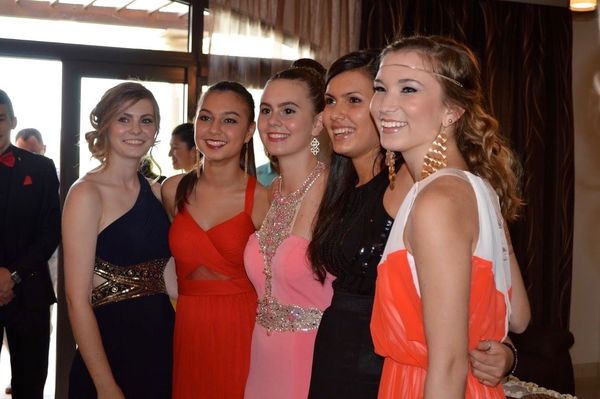Rachel Dolezal. Ja Du. These are a couple of the names that have surfaced in the news here and there during the last couple of years, belonging to people claiming to be “transracial:” born white, but identifying as a person of color (black and Filipino, respectively). The general reaction to these supposedly transracial people has been an angry one, especially from people of color, who are rightfully concerned about the insensitive appropriation of their identities and experiences.
The spread of these stories, which tend to erupt into social media dumpster fires, has resulted in floods of delighted anti-trans conservatives, who are eager to emphasize what they see as liberal hypocrisy. “So people can choose their gender, but not their race?” is a common phrase scattered across platforms such as Twitter, Facebook, and Reddit, declared with such a sense of triumph that it’s clearly thought to work as some sort of checkmate.
This perceived double standard, however, doesn’t hold up at all. It’s true: transgender people exist. Transracial people don’t. Why? Because gender and race, of course, are two completely different components of identity.
Both of these are social constructs: there is no biological evidence behind the existence of either gender or race. Just because something is a construct, however, doesn’t mean that it doesn’t have an influence on reality. And it’s indeed pretty much impossible to deny that both gender and race have heavy impacts on our daily lives, whether or not we are aware of it.
So why does gender possess a fluidity that race does not? Simply put, because it’s less complex--but that isn’t an answer that most will find satisfactory, so let’s go in a little deeper.
Gender divisions are, in large part, built on stereotypes and social roles, all of which vary massively between cultures and across history. Womanhood in regions of pre-colonial Africa may be vastly different from womanhood in medieval Europe. There is no right way to be a woman, and there is ultimately no collective experience of womanhood. Gender is performative: it is far less about how we perceive the world, and far more about how the world perceives us. To identify as a gender is to identify with a subjective component of society, the one which allows for the most genuine and accurate expression of one’s identity. Gender can form an important community, but it is one that we discover for ourselves, not one into which we are born.
Race is less easy to define. To some extent, there’s a physical component (though, as mentioned above, there is no biological evidence whatsoever of racial divisions actually existing). But it also has to do with nationality, ethnicity, and heritage. Race is something that people are born into--truly born into, not coercively assigned by a doctor based on external body parts. It will play a role, however big or small, in one’s upbringing, experiences, and perception of the world. In my experience as a white person, these experiences have all been flavored with privilege--privilege which, for many years of my life, I never noticed. For me, white privilege seemed invisible, because it was simply the way the world worked.
I am not able to begin identifying as a black person, as Rachel Dolezal attempted, because I did not grow up through experiences of blackness. I can and should appreciate and admire other cultures, and to some extent, I can participate in them, as well. But that does not make me black.
Of course, formative experiences can have an impact on the development of gender, as well. But there is a key difference: gender is learned. Race is inherited. This isn’t a biological argument, but rather a cultural truth. Customs, traditions, food, dress, religion, and speech patterns are all elements of lifestyle that can be tied to race. That isn’t, of course, to say that people of the same race will have any or all of these things in common, but there is always an impact.
Gender, again, is performative. It is not our way of existing, consuming, and producing, but instead our way of interacting with society. It is how we function in the world, not how we behave in the privacy of our homes. And because of this, it is a much more accessible and therefore fluid form of identity.
I know that I am transgender because I am uncomfortable being called a woman, I have an intimate uneasiness with my own body, and I feel a profound disconnect whenever I am designated female. But I’m still the same person that I was before puberty, when I identified as a girl: I can still wear makeup and engage in other typically “feminine” activities. That’s because none of these things have inherent connections to gender: we’re just taught that they fall on the “woman” side of the imaginary binary. There was nothing about my being raised as a girl that would have been inaccessible to children of any other gender.
People of color, however, would not have been able to live the same life as me. I existed--and still do exist--in a place of privilege that is utterly unattainable to someone who isn’t white. People of color cannot “transracially” identify as white people; therefore, we can not “transracially” identify as people of color. A black person would not be able to escape racial profiling due to their “identifying” as white, and a white person would not be pulled over by a cop because they “identified” as black. Trans women, on the other hand, are targeted even more than cis women, and though many trans men experience male privilege, we are often the victims of harassment, violence, and even misdirected misogyny.
The attempt to equate race and gender is, at its heart, childish. Anyone could point out the obvious differences between the two--but, as with all aspects of politics and culture, the significance runs even deeper than the surface suggests. The moral of the story: transgender people exist. Transracial people do not. Don’t get it twisted.



















